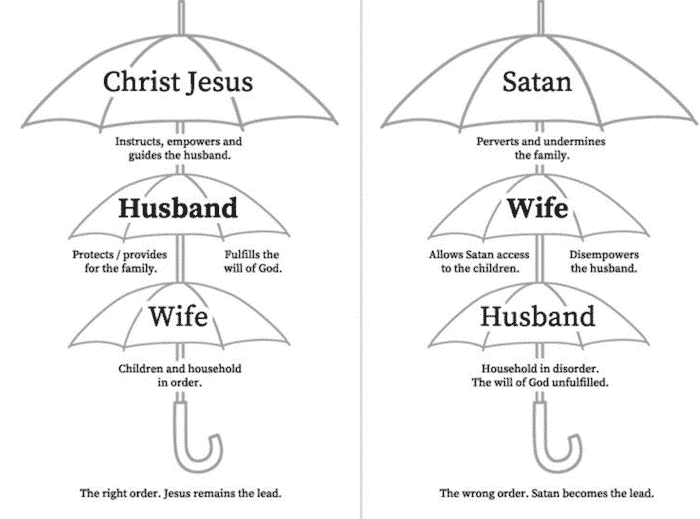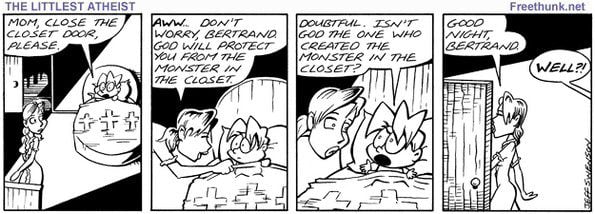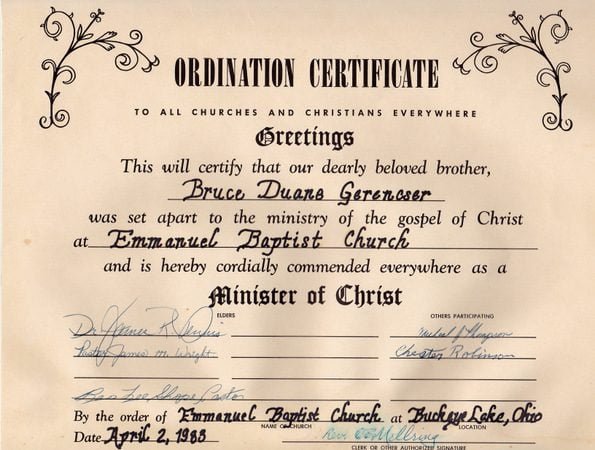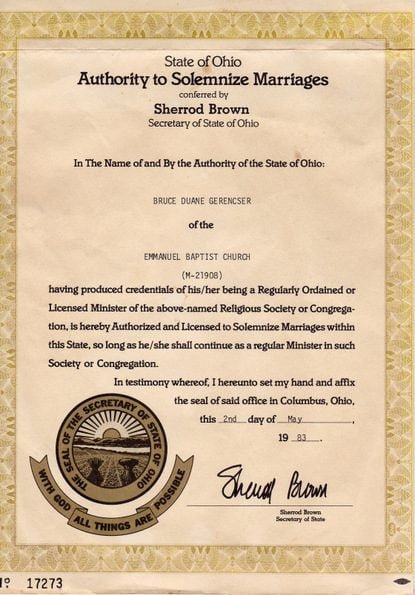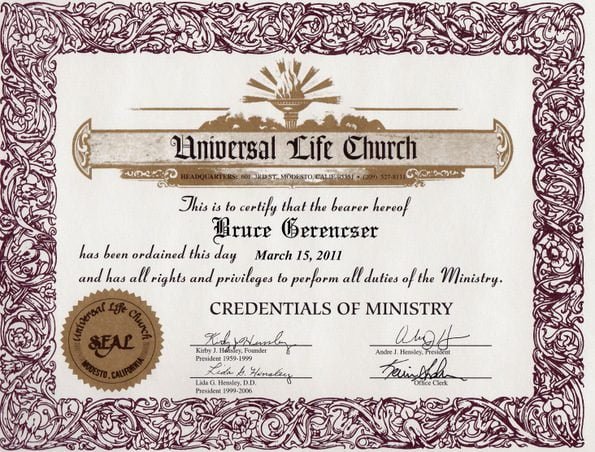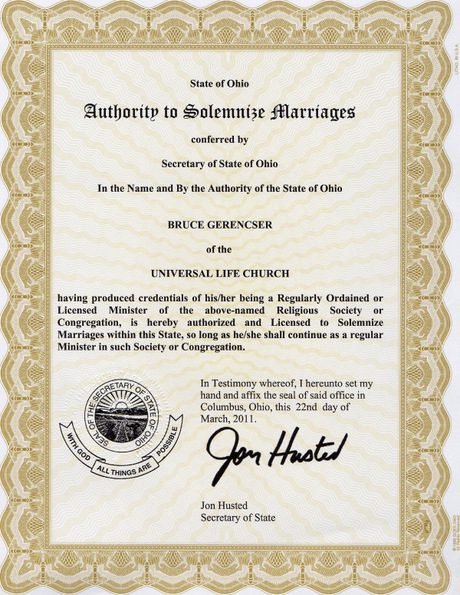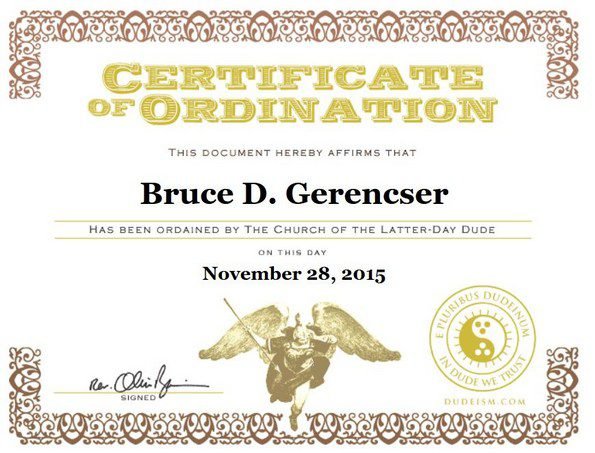
A guest post by Burr Deming. Burr blogs at Fair and Unbalanced
I enjoyed Quentin Tarantino’s Pulp Fiction. A lot.
I saw it in the theatre twice. I have seen it many times on cable television.
A friend once took up, as a hobby, teasing me about inconsistencies in the production.
In a flashback, Butch the fighter has childhood eyes of different color than he has as an adult. After a shooting, Butch only partially wipes his fingerprints from a gun. He encounters a cab driver who has a license bearing a name the spelling of which does not fit what it should be for an immigrant from her home country.
The list goes on.
Jimmie is a brief reluctant host to a couple of friends who happen to be killers. His wall clock seems to stay at the same time from scene to scene. “Lightning fast action” my friend observed.
A microphone can be seen hanging briefly in reflection at the upper right corner of a window.
That sort of thing.
While it lasted, I had fun participating in my friend’s game. I would present him with explanations.
My own eyes changed color a few years ago. No idea why, but I had to ask for a change in my driver’s license. It happens.
Someone involved in a shooting might indeed fail to be completely diligent in removing evidence. Understandable.
Some bureaucracy misspelled a name? Or someone has a name that runs counter to prevailing culture? My name is “Burr” for God’s sake. Try that for unusual parental inspiration.
A stopped clock? Look at our kitchen. I’ve been telling my loved one for months I’ll replace the battery. I’ll get to it soon, I promise.
The movie microphone reflected in the window still has me stumped. Can’t think of an explanation. So I told him: Every home should have one. He didn’t buy it. When I think of something better, I’ll give him a call.
The bullets stopped me cold, though. Guy steps out with a hand gun and blazes away at two central characters. But at least two of the bullets are suddenly seen in the wall behind them before the guy fires a single shot. First the wall is unmarred, then there are bullet holes, then there are gunshots.
I thought about that movie incident after reading an account by former pastor and current atheist Bruce Gerencser. Bible reading Christians occasionally claim to know more than does he about why he made that transition from faith to atheism.
Bruce responds, reasonably, that he accepts at face value the stories of Christians about their own journey toward faith. He asks for similar respect in return.
All I ask is that Christians do the same, regardless of whether they can square my storyline with their peculiar theology. It’s my story, and who better to tell it than I?
Frequent correspondent Ryan adds his voice, quoting a critic:
“It is the Bible, not I, who says that you do not believe because you do not want to believe. It is because I have studied the Bible and found it to be a reliable predictor of human behavior that I tend to accept its explanation rather than your protestation.”
Who better to tell my story than I? Apparently, any stranger armed with a Bible.
Little irritates me more than people who claim to know what I think or feel or do better than I do after only a few minutes of conversation or after labeling me, especially if they think that a religious text qualifies them to do so.
As I see it, Ryan speaks wisdom.
I can empathize to the extent that I have roughly parallel experiences within my own extended family. One has, by unspoken mutual agreement, avoided contact for a number of years. It seems I am not a real Christian because I do not hate the requisite groups. And I do not realize the actual reason I only pretend to follow Jesus, while refusing to join in God’s hate for Obama, Hillary, and gays.
Another family member, a skeptic, is at the other end of the spectrum. She knows, better than do I, why I submit to my own insecurities, following sheep-like into Christian belief. Her diagnosis: It is mostly because of my inability to venture into independent thought. I notice her slowing her words way down as she gently describes to me the obvious emotional deficiency that limits my mental range.
Okay, I admit all that has the ability to irritate. I respond in what I hope is gentle sarcasm. I flatter myself, believing that I know my inward thoughts more than anyone else could. And I enjoy living in the illusion that I am capable of rationality.
My friend J. Myste teaches me that a little gentle mocking is not injurious to mental health. He once complimented me on my staggering intellect, which was evident in the mental gymnastics I showed in defending an absurd religion. He once added this:
However, I think you really believe that God has visited my heart. You could be right. Perhaps God is influencing me. Perhaps the exorcism is not yet complete.
The Bible experience to which Ryan was subjected is not that uncommon. I once watched in awe as a visitor searched frantically through his Bible for a verse he knew would settle an argument. The argument was about whether scripture is infallible.
Circular logic sometimes seems to find its orbit around me. My friends help me out occasionally, in discovering it in my own reasoning.
One zombie story from long, long ago still occasionally makes the rounds. A religious man describes to a friend how very impressed he is with a new acquaintance. The new fellow actually talks with God. The friend is curious.
“Talks with God? How do you know that?”
“He said so himself!”
“But maybe he lied!”
“Would a man who talks with God lie?”
Unusual logic does not always flow in only one direction.
In my college days, a psych professor explained why religious beliefs are inherently absurd. Everything in the universe, including him and me, is merely an evolved combination of matter and energy. I remember suggesting that there is still wonder in our ability to analyze. If we are merely collections of matter and energy, then our universe of matter and energy is itself examined by a small number of its own collections of matter and energy. And that is a matter of wonder. There is a transcendence in consciousness.
He was dismissive. Consciousness, he said, is an illusion.
I regarded that with hidden amusement. I thought to myself, if consciousness is an illusion, who is around to be fooled?
I later discovered that he was presenting what had already become an aggressive argument when discussions of science and philosophy intersect. That aggressiveness sometimes approached antagonism. There was no room in a scientific worldview for consciousness.
Everything is composed of matter and energy. The only conclusion is that there is no such thing as consciousness.
I eventually happened upon Pierre Teilhard de Chardin, a Jesuit priest who was also a renowned paleontologist. I was amused at what I saw as an exercise in intellectual jujitsu. Teilhard agreed with a materialistic worldview. Everything is indeed composed of matter and energy. The only possible conclusion was that all matter and energy possess a sort of proto-consciousness that becomes something more as organisms evolve into complexity.
The late David Foster Wallace, in a famous commencement address, illustrated how the committed perspectives of two individuals could compel radically different conclusions. At first, I thought he was making fun of atheism. But with a little thought, I changed my mind:
There are these two guys sitting together in a bar in the remote Alaskan wilderness. One of the guys is religious, the other is an atheist, and the two are arguing about the existence of God with that special intensity that comes after about the fourth beer.
And the atheist says: “Look, it’s not like I don’t have actual reasons for not believing in God. It’s not like I haven’t ever experimented with the whole God and prayer thing.
“Just last month I got caught away from camp in that terrible blizzard, and I was totally lost and I couldn’t see a thing, and it was fifty below, and so I tried it: I fell to my knees in the snow and cried out ‘Oh, God, if there is a God, I’m lost in this blizzard, and I’m gonna die if you don’t help me.’”
And now, in the bar, the religious guy looks at the atheist all puzzled. “Well then you must believe now,” he says, “After all, here you are, alive.”
The atheist just rolls his eyes. “No, man, all that was was a couple Eskimos happened to come wandering by and showed me the way back to camp.”
The atheist is right, from his perspective. The prayer for a winning lotto ticket may seem to be answered, but there had to have been several million unanswered prayers as well. Statistics are on his side.
My desperate prayers that our young Marine might return safely from the battle zones of Afghanistan prove only that most combat heroes come back unharmed. We don’t know how many prayers were answered only with tragedy, death, and grief.
Does prayer cast us into a sort of Schrödinger parallel timeline? How can we know what, if anything but chance, guided those Eskimos to us?
In some religious argument, I have the advantage of having no compelling case to make. I can provide what many Christians call witness to my own belief. But it does not come from a Paul-of-Tarsus-like epiphany. In fact, I experience faith as more a weakness of imagination.
I can grasp the intellectual argument made by materialists. I can envision the amazing constructs that carbon atoms can achieve when the right series of chance cosmic occurrences combine with a lucky lightning strike and a few billion years of evolution. I can see in my mind some series of combinations of matter and energy that make up my desk, my computer, me, my loved one, our children, and others whom I love.
That love represents a problem, at least for me.
I do not have the capacity to sustain that materialistic grasp in my daily life, or in the experiences that matter most to me. Am I really a group of atoms and energy swirls that loves other similarly configured groups? It is possible, but I cannot sustain that view. I measure some ethical value by my level of care for what Jesus tells me is the least of these. I care about justice and injustice. It matters to me what policies our government follows and who lives, who dies, who is provided for as a result.
In my life, there have been a few individuals I have most admired. In my best moments, I have been able to act in ways I believe might have earned their approval. At least I enjoy thinking that. They were able to maintain a materialistic worldview that supported a level of love, ethics, and meaning that I can only have aspired to follow.
But I have trouble reconciling my cares, my loves, my character, my consciousness, with a purely materialistic view.
There is nothing in my internal experience that I would expect others to find compelling, unless there exists some chance encounter with someone who finds a fit. I would guess internal evidence is often compelling only to the one doing the experiencing.
As a Christian, I do share a communal vulnerability. Our faith is historically based, at least in part. Our belief comes from our view of history.
I am not concerned with the truth or falsehood of the Virgin Birth or the astrologers traveling from points east. The census that required a trip to Bethlehem may be fictional. I enjoy the water-to-wine story and the raising of Lazarus, but neither is central to my faith. I’m okay with Jesus walking on water, or knowing which stone to step on, or surfing on a piece of driftwood, or simply standing on shore.
I do love the idea that God would come to earth as human, experiencing more temptation, pain, and struggle than most of humanity. So my faith would be shattered if it was proven to me that Jesus died running in panic from Gethsemane with a Roman spear in his back.
But even that twisting of the universe might reinforce what I already know: that the specifics of my religious faith are constructs that make a deeper truth comprehensible to me.
That may be why I enjoyed Quentin Tarantino’s Pulp Fiction. It has to do with those bullets.
One of the gunmen in the path of those shots quickly decides that he ought to have been killed, that he is at the center of a miracle.
On the surface it seems absurd. He is, after all, in the business of terrifying, then killing, helpless victims. He seems to enjoy the evil he generates. He has fun destroying others. But then comes that moment of new clarity. God had come into his life.
His friend, the other gunman, disagrees.
“I just been sitting here thinking.”
“About what?”
“About the miracle we just witnessed.”
“The miracle you witnessed. I witnessed a freak occurrence.”
The gunman explains: It doesn’t matter.
I mean, it could be that God stopped the bullets, or He changed Coke to Pepsi, or He found my … car keys. Whether or not what we experienced was an According-to-Hoyle miracle is insignificant. What is significant is that I felt the touch of God.
In the silence of the night, I can often close my eyes, look inward, and feel a presence not my own. Perhaps it is only a phantom reflection of myself, or maybe a form of prayer. It is possible that I sense only the breath and the pulse and the touch of life.
Only.
It could be that I experience the consciousness that my psychology professor called an illusion. I’m okay with the universe in which I dwell turning out to be the accidental matrix made up of molecules.
It still is my home.
In friendly argument with a friend, I mimicked traditional religious posture. After all, it seems to be the way of the world.
“We can agree to disagree,” I told him. “You worship God in your way. I’ll worship him in His.”
Bruce Gerencser, 68, lives in rural Northwest Ohio with his wife of 47 years. He and his wife have six grown children and sixteen grandchildren. Bruce pastored Evangelical churches for twenty-five years in Ohio, Texas, and Michigan. Bruce left the ministry in 2005, and in 2008 he left Christianity. Bruce is now a humanist and an atheist.
Your comments are welcome and appreciated. All first-time comments are moderated. Please read the commenting rules before commenting.
You can email Bruce via the Contact Form.

